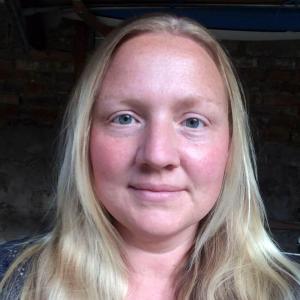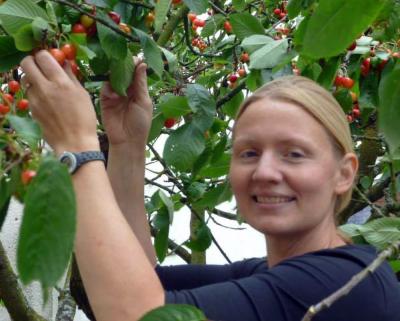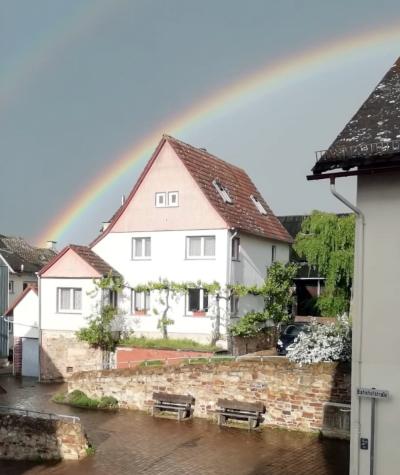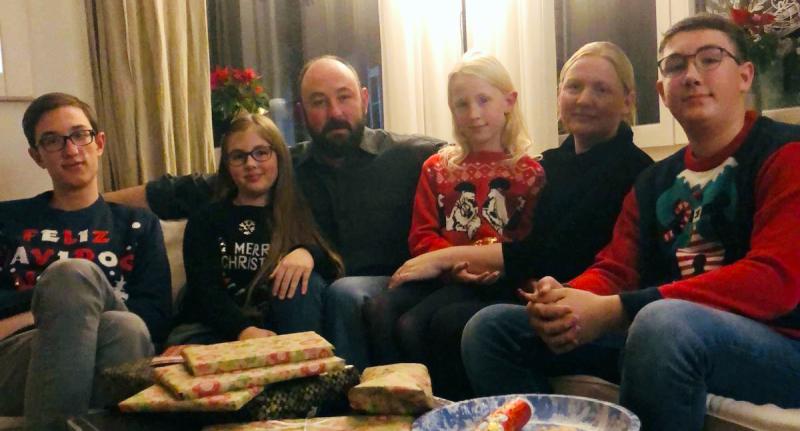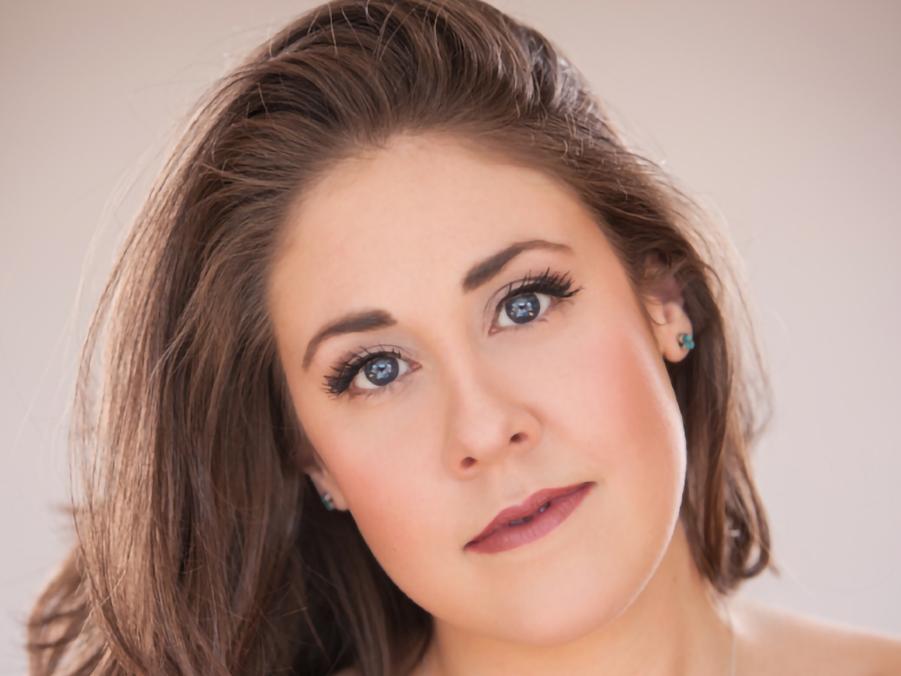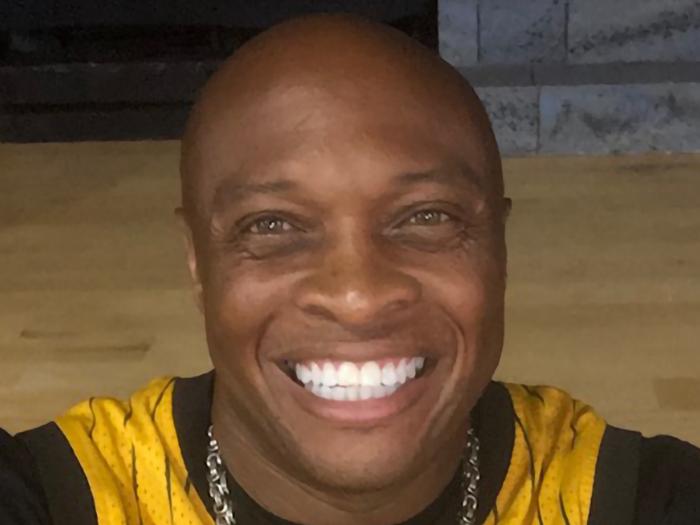When Renee (Heuss) Volk ’99 graduated at the top of her high school class in Antigo in 1995, she got the chance to give a speech at commencement. The theme of her speech, taken from a Dr. Seuss book, was telling: “Oh, the Places You’ll Go!”
Exploring our wide, wonderful world was a high priority for Volk, growing up with a better international perspective than most young Americans. She was the youngest of six children born to an American-born doctor and a German-born former nurse who kept strong ties to her native country.
“I love to travel. I think it’s great if you have the opportunity, especially as a young person,” Volk said in a video interview from her home in Dutenhofen, Germany. “I think you can understand people better and know that even though we have different priorities and customs, we are basically the same deep inside.”
Volk’s older sister, Cheryl (Heuss) Dettlaf ’97, was part of the reason Volk came to Viterbo as a first step toward medical school. Another big reason was the four-year, full-tuition scholarship she got from the Dr. Scholl Foundation. “I am still very thankful for that scholarship and the completely debt-free college education that it enabled,” she said.
With her medical school goal in mind, Volk worked extremely hard on her studies (chemistry major, biology minor), and in her senior year won recognition from the USA Today All-USA College Academic Team program. She also landed a summer chemistry internship at San Jose State University in California.
Even with her commitment to her studies and working off-campus jobs, Volk was determined to get deeply involved in campus life. She served three years as a student government representative, including a year as president, was a member of the biology and chemistry clubs, and devoted much time to volunteer service. She also relished the chance to get a behind-the-scenes experience of university events working for the Aramark catering service.
"I knew that exceptional academic performance and dedicated community involvement were essential to receiving a spot at a good medical school," Volk said. "Since that was my goal at the time, I made sure to work hard to make it possible."
In the end it worked. She earned admission to the Medical College of Wisconsin.
Graduating debt-free, Volk decided to take a gap year before going to medical school so she could travel. She visited Israel during spring break of her senior year, then after graduation joined a Viterbo environmental studies trip to Belize. Next was a stint in South Korea before moving on to Germany, where she visited family before being joined by a Viterbo friend to explore Europe by rail.
In Germany, her life took an unexpected turn after meeting Frank Volk, the cousin of her older sister’s husband. She decided not to go to medical school, marrying Frank in 2001, settling in Germany and raising a family that includes two sons and two daughters, ranging in age from 10 to 18.
“I’ve been asked in the past if I regret not going on to medical school. My answer is always a firm ‘no,’” Volk said. “I do, of course, sometimes wonder where I would be had I done so, but I also believe that everything happens for a purpose and that life is about the journey, not the destination.”
In Dutenhofen, a small town north of Frankfurt, the Volk family lives in a 300-year-old house, the 19th house built in the village (its first address was 19 Dutenhofen). Volk grew up in the country with 80 acres to explore, but she’s learned to love her 0.2 acre lot in Dutenhofen. It helps that the family has land outside of town with an orchard and plenty of space for a garden.
Cultural traditions, beliefs, and viewpoints in Germany are much more deeply engrained than in her much younger homeland. That rigidity can be frustrating, but to Volk, there is a lot to love about living in a land that has seen so many generations come and go.
“We live in a region of Germany where one can readily encounter remnants of ancient Germanic tribes, the Romans, the Huguenots, religious reformation, very present signs of the two world wars, amazing industrialization, and much more,” Volk said. “I love the living history around me!”

